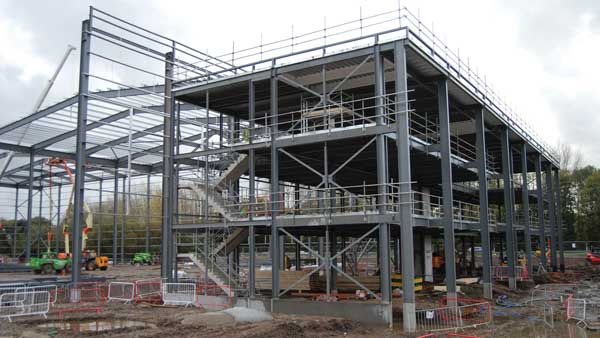News
President’s Column: March 2023
I think we can all agree that we’ve traded through a very difficult and unstable couple of years. One wonders how the next two years will pan out, especially if the analysts are using data from an unstable period to predict the future. Interpolation of data is easy, extrapolation of data is almost always inaccurate. The best advice I’ve read is to ignore all the data from the COVID-19 period and concentrate on the data pre-COVID-19. The excess money pumped into the global system to support the problems caused by COVID-19 was $17 trillion. Some of this excess money is still in the system, but we should brace ourselves for some mild recessions before the global economy can rebalance by 2024.
We’ve all seen high inflation figures in recent years, and they would have been as high as 13% without the energy price guarantee being in place for homeowners, although I’m saddened to say there is no real effective help available for structural steelwork contractors (that have a production facility). I have been told however to expect inflation to reduce to between 3 to 5% in a year from now. Interest rates are expected to be around 4% for some time, so business’ that have significant debt will be likely to suffer the most.
Unless you have been “off grid” for a number of years you’ll know that the UK is short of 3.5 million workers. This hasn’t helped with 600,000 fifty-five- to sixty-year-olds retiring early in the last nine months. The latter has shocked the government, but with a rethinking of the work life balance and a very generous low interest period since 2009, many of these people have worked hard and paid their mortgages off early. I’m not quite sure how you can incentivise people to work when they don’t want to. After all successive governments haven’t been able to do that with people having very little money, how are they going to do it when a couple has built up a nice little nest egg and can afford to retire. It is also thought that unemployment will rise by 500,000 in the next year, but it won’t help the overheated job market.
UK investment is now 17.5% of GDP, which is 27% less than its immediate neighbours, as most of the leading countries have that figure in the low to mid-twenties. It’s not surprising to me that investment is down in the construction industry. Most of us are struggling to make a decent return, competition is fierce and the standard forms of contract are so heavily modified to the detriment of the Tier 2 sub-contractor that if they were a public contract they would be deemed unfair. Retentions in the form of cash or retention bonds are as troublesome now as they have ever been. I’ve always thought that to remove retentions would need government intervention. It will be difficult to persuade government to act on retentions when you hear one leading MP being recently quoted as saying, “companies affected by retentions should just put that money onto their price”. If only it was so simple!
Mark Denham
BCSA President
Reference: Economic statistics from Economic Update December 2022, Roger Martin-Fagg











